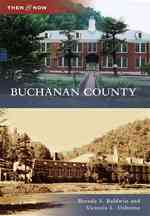- ホーム
- > 洋書
- > 英文書
- > Philosophy
Full Description
Philosophy in antiquity was conceived not as mere theory but as a way of life; but it lost its 'practicist' cast through a process that begins in the patristic era and peaks with its conversion into an academic discipline in the medieval universities under the influence of 13th-century scholasticism. Juliusz Domański sets out the reasons behind that process and shows how traces of the 'practicist' orientation survived, ultimately leading to a recovery of the ancient notion among the humanists of the Renaissance. A foreword by Pierre Hadot relates Domański's research to his own vision of the history of philosophy.
Contents
Contents
Translators' Note
Foreword
Pierre Hadot in Poland
Preface
Acknowledgments
Translators' Introduction
1 The Ancient Ideal of the Philosopher and Its Patristic Challenge
1.1 The Anecdote about Pythagoras
1.2 The Ancient Definitions of Philosophy
1.3 The Meaning of "Practice"
1.4 Three Models of the Relationship between Theory and Practice
1.5 The Personality of the Philosopher
1.6 The Ancient Conception Challenged by the Church Fathers
2 The Nature of Philosophy as Seen by the Medieval Scholastics
2.1 Philosophy Relegated to the Level of the Liberal Arts
2.2 Some Remarks on the Continuation of the Tradition of Boethius' Consolation
2.3 The Liberal Arts and Philosophy
2.4 The Scholasticism of the 13th Century
2.5 The Wisdom of Philosophy and Christian Wisdom
2.6 The "Essential" Parts and the "Less Important" Parts of Philosophy
3 The Crisis of the Scholastic Conception
3.1 The Survival of the Patristic Vocabulary
3.2 Peter Abelard and the Ancient Philosophers
3.3 The Non-scholastic Tendencies of the 13th Century
3.4 The Reinforcement of the Non-scholastic Tendencies in the 14th and 15th Centuries
3.5 Jean Gerson and the "Atopia" of the Philosophers
4 The Humanists and Philosophy
4.1 Balance Sheet of Our Preceding Findings
4.2 Melior Fieri: Philosophy and Goodness in Petrarch and the Devotio Moderna
4.3 Biographies and Apothegms of the Philosophers: Pseudo-Burley and Ambrogio Traversari
4.4 The Humanists in Search of the Philosophical Personality
4.5 Erasmus and Philosophy
Appendix: Atopia and Other Topics: Philosophy and Philology in Juliusz Domański's Work
Index of Proper Names







